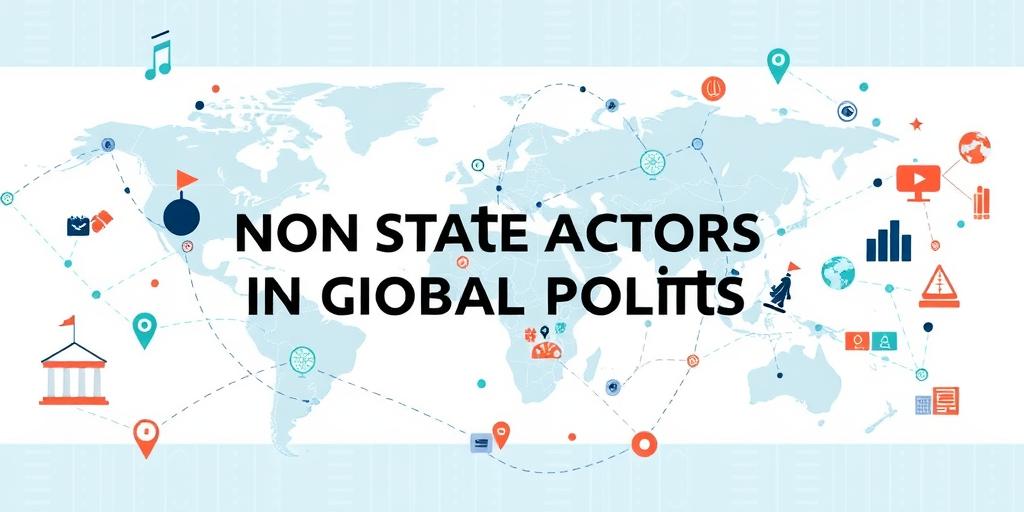The Expanding Influence of Non-State Actors in Global Politics
In the realm of international relations, the traditional focus has long been on the interactions between sovereign states. However, the landscape of global politics is far more intricate, with a multitude of non-state actors (NSAs) wielding considerable influence. These entities, which operate independently of governmental control, play increasingly significant roles in shaping world events, driving policy changes, and impacting the lives of individuals across the globe.
Defining Non-State Actors
Non-state actors encompass a wide array of entities, including:
- Multinational Corporations (MNCs): These companies operate across national borders and can influence economic policies, labor practices, and environmental regulations.
- Non-Governmental Organizations (NGOs): NGOs work on a variety of issues, such as human rights, environmental protection, and humanitarian aid. They often advocate for policy changes and provide essential services in areas where governments are lacking.
- International Organizations: Groups like the International Red Cross provide humanitarian aid, monitor conflicts, and promote international humanitarian law.
- Transnational Criminal Organizations: These groups engage in illicit activities, such as drug trafficking, human trafficking, and arms smuggling, which can destabilize regions and undermine state authority.
- Armed Non-State Actors: These include rebel groups, terrorist organizations, and insurgent movements that use violence to achieve their political objectives.
The Growing Influence of NSAs
Several factors have contributed to the rise in prominence of NSAs in global politics:
- Globalization: Increased interconnectedness through trade, communication, and transportation has enabled NSAs to operate more easily across borders.
- Technological Advancements: The internet and social media have provided NSAs with powerful tools for communication, mobilization, and advocacy.
- Weak or Failing States: In countries with weak governance or ongoing conflicts, NSAs often fill the void by providing services, exerting control, or challenging state authority.
- Shifting Political Landscape: The decline of traditional power structures and the rise of new ideologies have created opportunities for NSAs to gain influence.
Impacts and Implications
The involvement of NSAs in global politics has far-reaching consequences:
- Policy Influence: NGOs and advocacy groups can shape international norms and policies through lobbying, research, and public awareness campaigns.
- Economic Impact: MNCs can drive economic growth, but also exploit labor, damage the environment, and evade taxes.
- Security Challenges: Armed NSAs can destabilize regions, perpetrate violence, and undermine peace efforts.
- Humanitarian Assistance: NGOs provide crucial aid to populations affected by conflict, natural disasters, and poverty.
- Governance Issues: The rise of NSAs challenges traditional notions of state sovereignty and raises questions about accountability and legitimacy.
Navigating the Complexities
Understanding the role of non-state actors is essential for comprehending the dynamics of global politics. While NSAs can contribute to positive change, they also pose significant challenges. Effective governance and international cooperation are needed to manage the impacts of NSAs and ensure that their actions align with the broader goals of peace, security, and sustainable development.
Conclusion
The evolving role of non-state actors in global politics reflects a shift from a state-centric world to a more complex, multi-actor environment. As NSAs continue to grow in influence, it is critical to analyze their impacts and develop strategies for engaging with them in a way that promotes positive outcomes for all.









